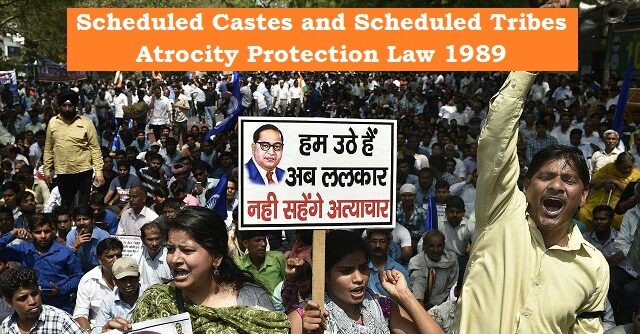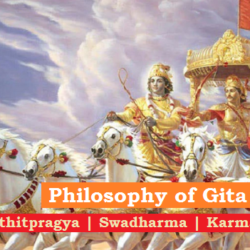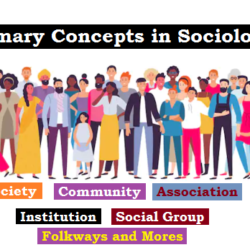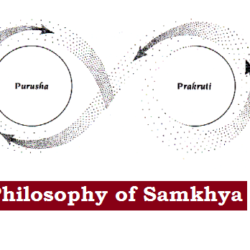
The Scheduled Castes and Tribes (Prevention of Atrocities) Act (PoA Act), 1989, also known as the SC/ST Act is enacted to prevent atrocities against Scheduled Castes and Scheduled Tribes. The Civil Rights Protection Act (सिविल अधिकार संरक्षण अधिनियम), 1955 was considered ineffective in the 1980s and therefore replaced with ‘Scheduled Caste and Scheduled Tribe (Prevention of Atrocities) Act’ in 1989 and the Scheduled Castes and the Scheduled Tribes (Prevention of Atrocities) Rules in 1995. It was amended in 2015 with more stringent provisions and more offences under the Act.
It was envisaged in the line of Article 21 (the right to live with dignity) and Article 17 (abolished “Untouchability” and its practice in any form) to bring the equality and inclusiveness in the society.
| Table of contents |
| 1. Salient Features of the Act 2. Amendment 2015 3. Amendment 2018 4. Important Sections of the Act 5. Questions from CGPSC Mains Examinations |
Salient Features of the Act
Punishment:
- A person not being a member of a Scheduled Caste or a Scheduled Tribe shall be punishable with imprisonment for six months to five years and with fine for certain offences:
- Social disabilities: fouls water sources,
- Personal atrocities: forcing to drink or eat any inedible, sexual exploitation and like acts which are derogatory to human dignity
- Atrocities affecting properties: wrongfully occupying property, forcing to leave home/village
- Malicious prosecution: Filing false cases
- Political disabilities: preventing from voting or being a candidate,
- Economic exploitation: bonded labour
| New Offences were included in Amendment Act, 2015 |
| The Amendment Act extended the scope of some of the existing offences and also included 19 new offences like Tonsuring of the head, moustache, or similar acts which are derogatory to the dignity of members Garlanding with chappals or shoes, abusing in caste name Dedicating a woman as Devadasi Perpetrating witchcraft atrocities Imposing social or economic boycott, etc. |
- Certain serious atrocities are dealt with more stringent punishment of imprisonment and fine.
- False evidence or prosecution which convicts a victim of an offence which is capital in nature shall be punished with imprisonment for life and with fine. If the victim in such case be convicted and executed, the prosecutor shall be punished with death.
- Mischief by fire or any explosive substance to damage any property shall be punishable with imprisonment for six months to seven years and with fine.
- Mischief by fire or any explosive substance to cause destruction of place or worship or human residence shall be punishable with imprisonment for life and with fine.
- Public Servants:
- If public servant not being a member of a Scheduled Caste or a Scheduled Tribe commits any offence, shall be punishable with imprisonment for one year but which may extend to the punishment provided for that offence.
- If he willfully neglects his duties required to be performed by him under this Act, shall be punishable with imprisonment for six months to one year.
- Strict disciplinary action against government officials for showing ‘willful negligence’ of duties.
- Preliminary enquiry is not required for registration of a FIR and prior approval for arrest is also not required to arrest any person. (Amended in 2018)
- It provides for enhanced punishment for subsequent conviction under the Act.
| Supreme Court Judgment 20 March 2018 |
| In an attempt to curb the misuse of SC/ST (Prevention of Atrocities) Act, 1989 and protect honest public servants Supreme Court gave following verdict: 1. The public servants can only be arrested with the written permission of their appointing authority. Before arresting a public servant under the Act, a preliminary investigation by an officer not below the rank of Deputy Superintendent (DSP) is a must. 2. Anyone accused of a crime under POA act, an arrest can be made only after the Senior Superintendent of Police concerned allows it. Further Supreme Court observed that 1. The bench referred to the National Crime Records Bureau (NCRB) data for 2015, which said that closure reports had been filed in 15-16 percent of the complaints under the Act 2. Over 75 percent of such cases taken up by the courts had resulted in acquittals/ withdrawal or compounding (not to prosecute a criminal) of the cases. 3. There was a need to safeguard innocent citizens against false implication and unnecessary arrest for which there is no sanction under the law. The Supreme Court was hearing the case filed by Subhash Kashinath Mahajan, Director of Technical Education of Maharashtra, who had challenged a Bombay High Court judgment. The Supreme Court reversed the judgment of Bombay high court. The Bombay high court had earlier rejected a plea to quash the complaint filed against Mahajan by Bhaskar Karbhari Gaidwad, a store-keeper in a pharmacy college in Maharashtra, for making adverse entries in Gaidwad’s Annual Confidential Report. There were protests all over India against the Supreme Court’s verdict and the Government was forced to pass an amendment in 2018 to nullify the Supreme Court’s March ruling by making amendment in Section 18 of the Act. Government’s Views for the Amendment: 1. The Supreme Court ruling dilutes the provisions of the Act. 2. Preliminary enquiry and approval would delay registration of First Information Report (FIR) and will impede strict enforcement of the provision of the Act. 3. It would result in delay in payment of admissible relief amount to the victims of atrocities admissible only on registration of FIR. 4. All this would adversely affect the very objective of the Act to prevent commission of atrocities against members of SC and ST and be severely detrimental especially in heinous offences like sexual exploitation of SC/ST women including rape, gangrape, acid attacks and murder etc. |
Duty of the Government:
- The Central Government is empowered to make rules to carry out the provisions of this Act.
- The Central Government has to place on the Table of each House of Parliament a report on the measures taken by itself and by the State Governments.
- The State Government shall take such measures as may be necessary for the effective implementation of this Act.
- Like legal aid to the victims, appointment of supervision officers, setting up special courts
- Economic and social rehabilitation of the victims
- Committees for better implementation, surveys, etc
- There are District Monitoring and Vigilance Committees (DVMCs) chaired by District Collector and State Monitoring and Vigilance Committee (SVMC) chaired by the Chief Minister.
- If after an inquiry the State Government is satisfied that the inhabitants of an area are involved in any offence punishable under this Act, the Government may impose a collective fine on the inhabitants.
- Empowers the State to take preventive action (by the law and order machinery) to prevent atrocities and to restore the feeling of security amongst the members of the Scheduled Castes and the Scheduled Tribes.
- Investigation of an offence committed under the Act cannot be investigated by an officer not below the rank of Deputy Superintendent of Police (DSP).
Special and Exclusive Special Courts:
- For the purpose of providing for speedy trial, the State Government shall specify for each district a Court of Session to be a Special Court to try the offences under this Act.
- Power of Exclusive Courts to take cognizance of offence and completion of trial in 2 months (as far as possible).
- For every Special Court, the State Government shall specify a Public Prosecutor who has been in practice as an advocate for not less than seven years for the purpose of conducting cases in that Court.
- No legal proceeding can be taken against the Central Government or a State Government for anything done in good faith under this Act.
Victims Rehabilitation: (included in Amendment Act, 2015)
- It included rehabilitation of victims.
- Included important measures for safety and security of women.
- Rights of victims and witnesses protected (Safety, concealing names etc.).
Important Sections of the Act
| Important Sections | Provisions |
| Section 3 | Punishments for offences of atrocities |
| Section 4 | Punishment for neglect of duties |
| Section 14 | Special Court and Exclusive Special Court |
| Section 15A | Rights of victims and witnesses |
| Section 18 | No Anticipatory bail Section 18A: No enquiry or approval required |
| Questions from CGPSC Mains Examinations |
| 2022 What is ‘Social Boycott’ under Scheduled Caste and Scheduled Tribe (Prevention of Atrocities) Act, 1989? (2 marks) अनुसूचित जाति एवं अनुसूचित जनजाति (अत्याचार अधिनियम), 1989 के अंतर्गत ‘सामाजिक बहिष्कार’ क्या है? (2 अंक) |
| 2021 1. Describe any 8 ‘crimes of atrocities’ mentioned in the Scheduled Caste and Scheduled Tribes Prevention of Atrocities Act, 1989. (08 marks) किन्ही आठ ‘अत्याचार के अपराध’ का वर्णन कीजिये जिंका उल्लेख अनुसूचित जाति एवं अनुसूचित जनजाति (अत्याचार निवरण) अधिनियम, 1989 मे किया गया है। (08 अंक) |
| 2019 What is Section 3 of SC and ST (Prevention of Atrocities) Act, 1989? Explain. (4 marks) अनुसूचित जाति और अनुसूचित जनजाति (अत्याचार निवारण) अधिनियम, 1989 की धारा 3 क्या है? बताइये। (4 अंक) |

 Home
Home Syllabus
Syllabus Contact Us
Contact Us




